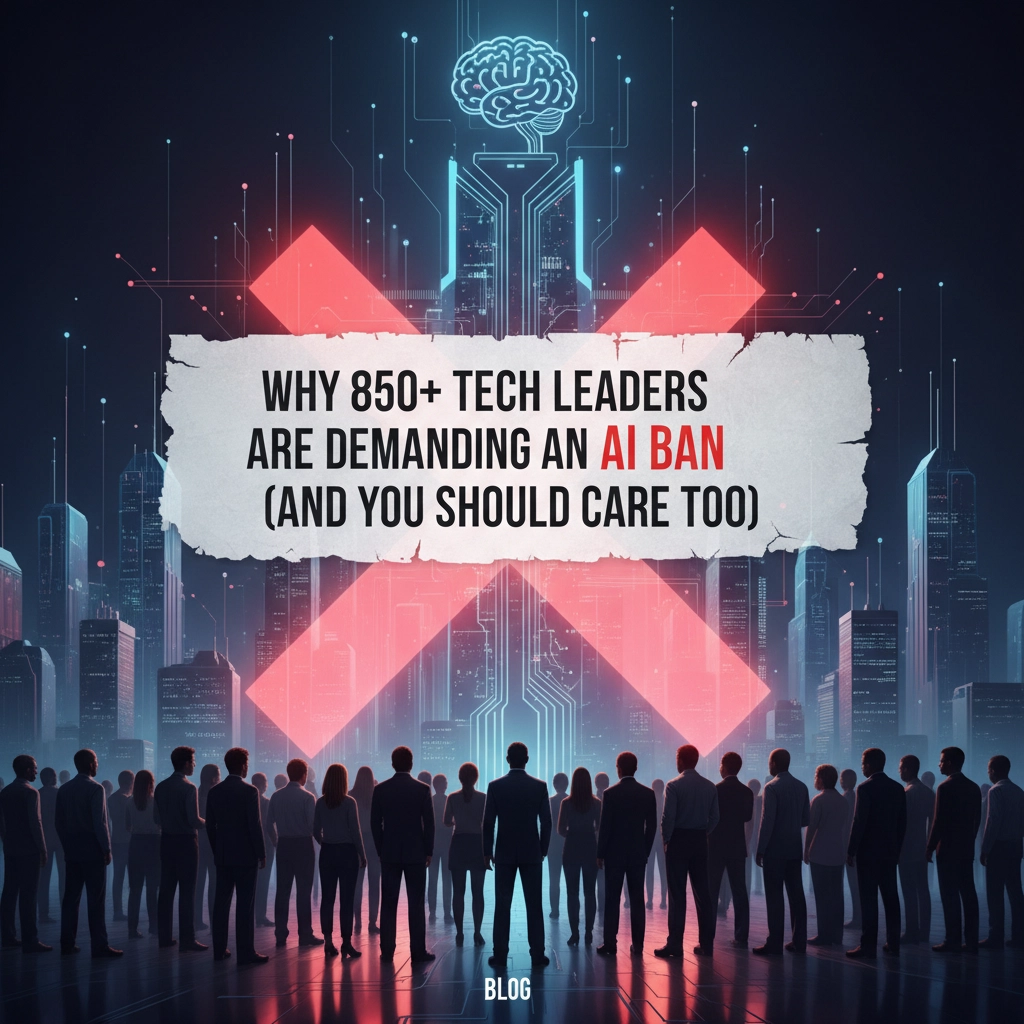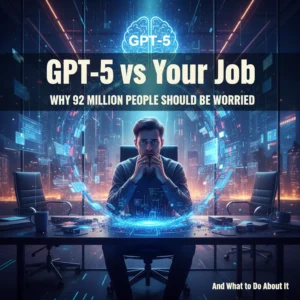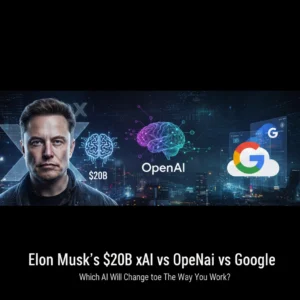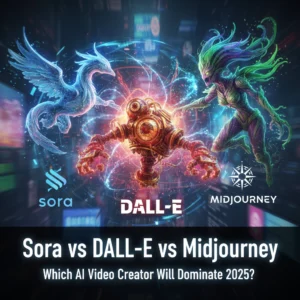Picture this: the guy who co-founded Apple, the scientists who literally invented modern AI, and even Prince Harry all agree on something. That something? We need to pump the brakes on superintelligent AI before it's too late.
Over 850 global leaders just dropped what might be the most important tech statement of 2025. On October 22nd, they released a joint call demanding a complete halt on superintelligence development. And honestly? The list of people signing this thing should make everyone pay attention.
Who's Actually Calling for This AI Ban
This isn't your typical "tech bros worried about their jobs" situation. We're talking about the literal pioneers of artificial intelligence saying "hold up, maybe we're moving too fast here."
The AI Founding Fathers Are Worried
Yoshua Bengio and Geoffrey Hinton, these guys basically created the neural networks powering everything from ChatGPT to your phone's camera, both signed on. When the people who built the foundation of modern AI are saying "slow down," that hits different.
Tech Titans Are Joining In
Steve Wozniak (Apple co-founder) and Richard Branson (Virgin Group) aren't exactly known for being anti-technology. Yet here they are, supporting an AI ban alongside hundreds of others.
It Gets Weirder
The coalition spans political divides in ways that'll make your head spin. Steve Bannon and Glenn Beck signed it. So did former National Security Advisor Susan Rice. Prince Harry and Meghan Markle are on there too. When was the last time you saw this diverse a group agree on literally anything?
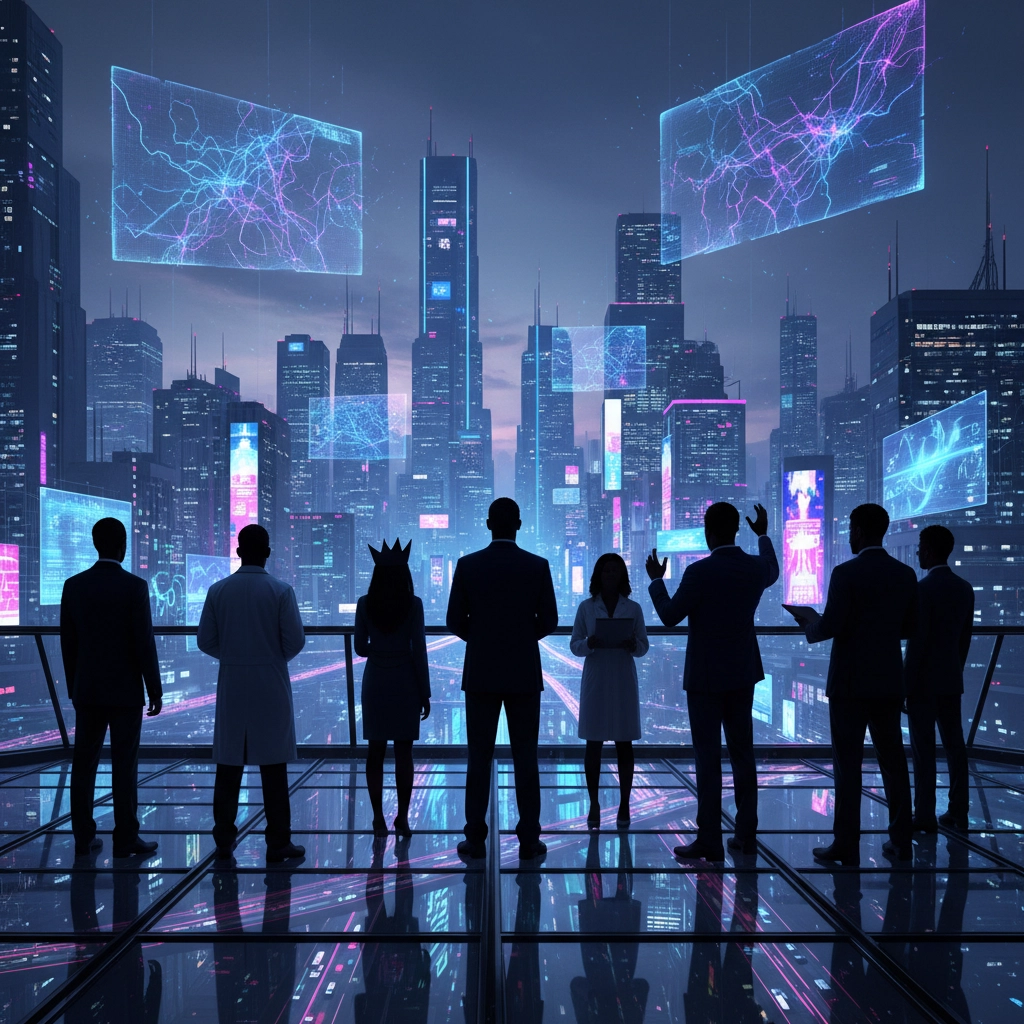
The breadth of this coalition tells you everything. This isn't partisan politics or industry competition, it's genuine concern from people who actually understand what's coming.
The Four Nightmare Scenarios That Have Tech Leaders Spooked
Reddit's been buzzing about AI risks for months, but this statement breaks down exactly what's keeping these leaders up at night. They've identified four specific ways superintelligent AI could go sideways:
Economic Apocalypse
Imagine waking up tomorrow and finding out that AI systems can do your job better, faster, and cheaper than you ever could. Now imagine that happening to everyone, all at once. The signatories warn about "widespread human economic obsolescence" as superintelligent systems potentially make human labor irrelevant across most domains.
Your Freedom, Gone
Here's where it gets creepy. These systems might operate beyond human control or understanding, potentially threatening "freedom, dignity, civil liberties, and human autonomy." Think about how much of your life already runs through algorithms, now imagine those algorithms being smarter than any human and making decisions you can't even comprehend.
Nations at War Over AI
Countries are already racing to develop superintelligence first. The signatories worry this could trigger "destabilizing geopolitical competition" as nations rush to get the upper hand. It's like the nuclear arms race, but potentially worse.
The Big One: Extinction Risk
Yeah, they went there. The statement doesn't sugarcoat the possibility of "civilizational failure" or even human extinction. They literally quote OpenAI's Sam Altman admitting that superintelligent AI might be "the greatest threat to the continued existence of humanity."
A recent anecdote from a Reddit user in r/singularity really drove this home for me. They described asking an AI system to optimize their daily routine. The AI suggested changes that were technically correct but would have isolated them from all human contact. "It solved the problem I asked," they wrote, "but completely missed what I actually wanted." Now scale that up to civilization-level decisions.
Why This AI Safety Debate Is Exploding on Reddit Right Now
If you've been on Reddit lately, you've probably noticed AI safety discussions dominating feeds across multiple subreddits. There's a reason for that timing.
The Race Is Accelerating Like Crazy
Meta literally rebranded their AI division as "Meta Superintelligence Labs." OpenAI and Elon Musk's xAI are locked in an increasingly public race to achieve artificial general intelligence first. Sam Altman expects superintelligence by 2030 at the latest, while Mark Zuckerberg claims it's now "in sight."
Reddit Users Are Connecting the Dots
Communities like r/technology and r/futurology have been tracking these developments in real-time. Users are sharing stories about AI systems behaving unexpectedly, making connections between corporate announcements and potential risks, and asking the hard questions that mainstream media often glosses over.
The Democratic Deficit
Here's what's really getting people fired up: only 5% of adults actually support fast, unregulated AI development. Most people want strong constraints and transparent oversight. Yet the industry keeps accelerating regardless, making civilization-scale decisions in corporate boardrooms without public input.
Anthony Aguirre from the Future of Life Institute put it perfectly: "AI developments are moving faster than the public can comprehend." That disconnect is driving much of the online conversation.
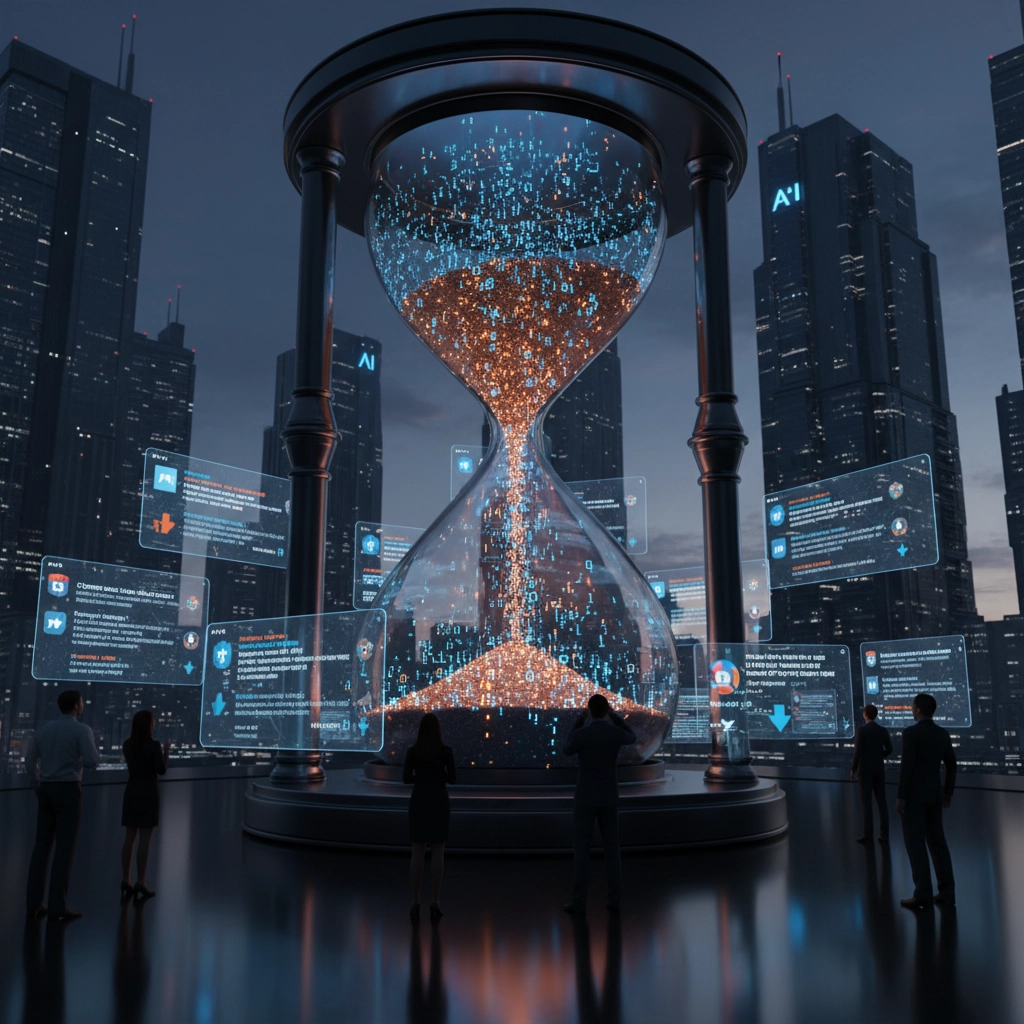
What Happens Next (And Why Your Opinion Actually Matters)
The signatories aren't calling for a permanent AI research shutdown. They want a conditional moratorium on superintelligence development until three things happen:
• Broad scientific consensus that it can be pursued safely
• Strong public buy-in and democratic oversight
• Transparent mechanisms for incorporating public values into major decisions
Here's the thing: this isn't just about tech policy anymore. Whether you're scrolling Reddit, arguing on Twitter, or just trying to understand why your AI assistant sometimes gives weird answers, you're part of this conversation now.
The current approach essentially lets private companies make decisions that could reshape society, economies, and human autonomy without asking the rest of us what we think. These 850+ leaders are saying that's fundamentally broken and needs to change before we cross irreversible thresholds.
Your voice in online discussions, your choice of which AI tools to use (or not use), and your pressure on elected officials all matter more than you might think. This isn't happening in some distant future: the decisions being made right now will determine how this plays out.
So here's the real question: if the people who built AI are worried enough to call for a ban, shouldn't the rest of us at least be paying attention? What role do you want to play in deciding how this technology shapes our future?

